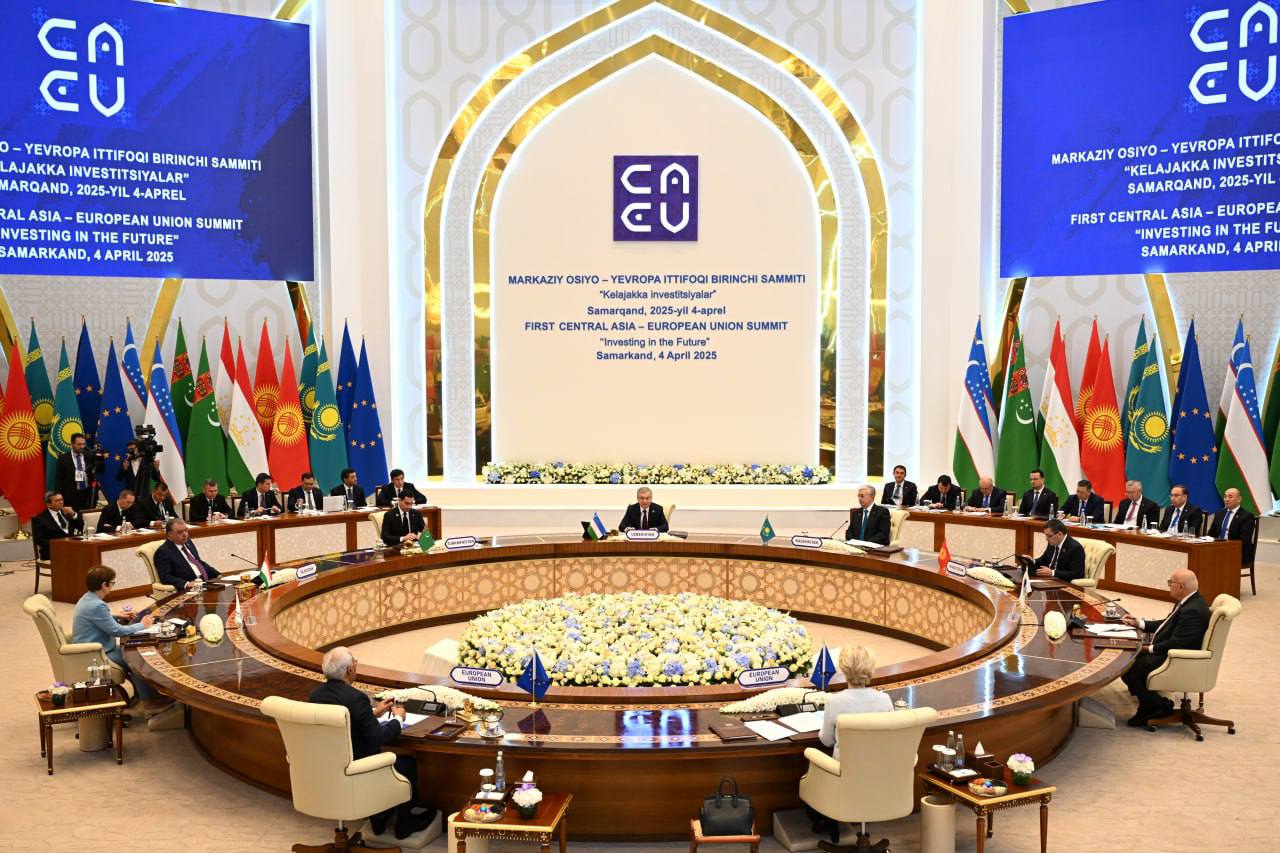BAKU, Azerbaijan, November 24. At the end of November, Tashkent will once again take center stage in Eurasian politics. On November 26, 2025, Uzbekistan will host the Third EU-Central Asia Economic Forum, a key platform for discussing the future of cooperation between the European Union and the countries of the region.
Attention to Central Asia today is unprecedented. Over the past year, Tashkent, Astana, and other regional capitals have regularly hosted major summits, ranging from EU-Central Asia to China-Central Asia, while the U.S.-Central Asia format has even reached the level of a high-profile meeting in Washington.
Amid this diplomatic activity, one detail stands out: no transit, logistics, or energy project in Eurasia can be fully implemented without Azerbaijan. Baku is not merely a part of the connectivity architecture - it has become its central supporting pillar. For European, American, or Chinese projects aimed at improving transport corridors, Azerbaijan is not optional - it is central.
Today, Baku is Central Asia’s gateway to Europe and simultaneously Europe’s key access point to East Asian markets. That is why the upcoming EU-Central Asia Forum provides a timely opportunity to openly acknowledge that any discussion of regional projects, supply chains, or new routes is meaningless if it excludes Azerbaijan.
A recent milestone underlines this reality: Azerbaijan’s full inclusion in the Central Asian consultative format. The region has long ceased to be limited to just five countries, and Baku’s participation underscores that no transit, logistics, or energy project in Eurasia can succeed today without Azerbaijan. As Kazakhstan’s President Kassym-Jomart Tokayev noted, Azerbaijan will make a "substantial contribution to strengthening interregional cooperation", while Uzbek President Shavkat Mirziyoyev emphasized that with Baku involved, "the region’s voice will become even more significant" on the global stage.
The Third EU-Central Asia Economic Forum in Tashkent will bring together representatives from the EU, the region’s governments, the private sector, international financial institutions, and organizations. Key topics include improving the business climate, expanding trade, fostering regional integration, developing value chains, and strengthening skills.
The following day, the Trans-Caspian Investor Forum will take place - another clear signal that the EU is betting on the Middle Corridor. Under the Global Gateway initiative, the EU is already channeling a 12 billion euro investment package into Central Asia, 10 billion euros of which is earmarked for the development of the Trans-Caspian transport corridor.
Meanwhile, China is actively deepening its engagement in the region. At the China–Central Asia Summit in June, Chinese President Xi Jinping confirmed plans to provide around $210 million in financial assistance, part of which will support infrastructure projects under the Belt and Road Initiative. Azerbaijan is among the project’s largest investors, ranking second only to China in terms of investment volume.
The U.S.-Central Asia Summit, held on November 6 in Washington, also focused on trade and transport links. There, U.S. President Donald Trump highlighted Azerbaijan’s pivotal role in the TRIPP project (The Trump Route for International Peace and Prosperity): "This is a new road passing through some of the most significant places in the world. It will boost commercial activity across the Caspian and give a powerful impetus to the development of Central Asian countries".
The Zangezur Corridor, or TRIPP, is already seen as a new infrastructural artery of the Middle Corridor. Over the past two years, freight volumes along the route have increased by nearly 90%. This growth has been made possible by Azerbaijan’s transport capacity: the largest Caspian fleet, a network of international airports, and the Baku-Tbilisi-Kars railway all make the country indispensable for Eurasian logistics. Given that the EU is already investing 10 billion euros in developing the same route, it is clear that TRIPP is not only a U.S. interest but also a strategic necessity for Europe.
At the same time, renewable energy initiatives are advancing. In November 2024, during COP29 in Baku, Azerbaijan, Kazakhstan, and Uzbekistan signed a strategic partnership agreement for the production and transmission of green energy. The Central Asia-Azerbaijan Green Energy Corridor project is being promoted with support from the Asian Development Bank and the Asian Infrastructure Investment Bank.
Azerbaijan’s Energy Minister, Parviz Shahbazov, recently stated that intensive work is underway to ensure the delivery of 4 out of 6 GW of renewable energy produced in Azerbaijan through the Caspian-Black Sea-Europe corridor by 2032. He emphasized that the Azerbaijan-Türkiye-Europe and Azerbaijan-Georgia-Türkiye-Bulgaria projects could serve as a bridge between Central Asia and Europe, forming a unified green energy platform from Asia to the EU.
Integrating fiber-optic systems into these routes further amplifies the impact: this is no longer just about energy, but also about digital and transport connectivity, further increasing Azerbaijan’s strategic importance.
Today, as the world’s major powers hold parallel summits with Central Asia, a clear picture emerges: the space between the Caspian and the Tien Shan is gradually becoming one of the key nodes of global connectivity. Yet no one in Brussels, Beijing, or Washington can afford to ignore the point where all these routes converge - Azerbaijan.
President Ilham Aliyev's consistent strategy has turned Baku into a central hub of the Eurasian architecture, whether in transport, energy, or communications. Thanks to this policy, Azerbaijan has become not only a reliable partner for Central Asian countries but also a key operator of the routes through which the region reaches Europe.
Ahead of the Third EU-Central Asia Economic Forum, Brussels faces a moment of truth: Central Asia cannot be considered in isolation from Azerbaijan. No route, energy corridor, or green project in the region can be sustainable without passing through Baku.
If the EU truly intends to strengthen its partnership with Central Asia, it must recognize Azerbaijan’s pivotal role in all regional projects. Without it, the picture is incomplete and the strategy unworkable. Today, no one in Eurasia doubts that Azerbaijan plays a central, system-shaping role in regional initiatives. It’s time for Europe to see this clearly as well.







